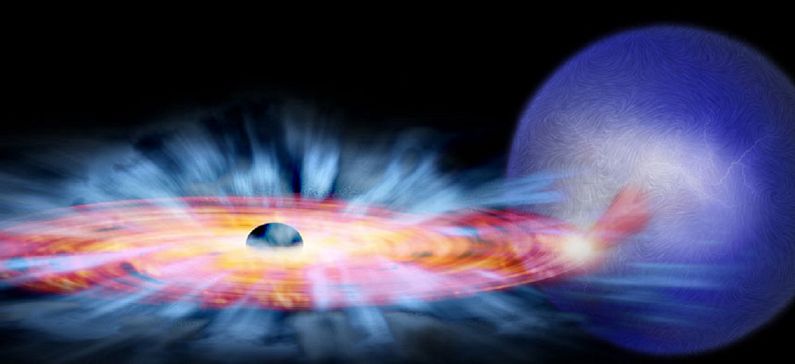
2 Greeks participate in new research for the black holes
The powerful “winds” that a black hole creates around it come from the enormous energy that creates its magnetic field, according to a new international scientific research, in which two Greek scientists participate.
Black holes – apart from “swallowing” stars and planets (and spacecrafts in Hollywood movies!) – emit terrifying rays and winds as they “spit out” much of the matter that had the misfortune of falling over them.
It is estimated that 10% to 50% of the ionizing radiation of the universe is born by attracting gas masses around the colossal black holes in the centers of the galaxies. This radiation is perceived by the telescopes in the spectrum of ultraviolet and X-rays.
But in addition to the radiation emitted, the so-called “accretion disk” around the black hole, which surrounds its borders (the “event horizon”), sends in the space powerful winds of gas and matter. These winds can even stop the creation of stars in a galaxy.
The study of these winds and the mechanism of their creation in the accretion disks of black holes is one of the central objectives of modern astrophysics.
The researchers led by Keigo Fukumura of the James Madison University, Virginia, who made this publication in the journal Nature Astronomy, shed light on the magnetic origin of these winds.
Two Greek scientists participated in the study; Demosthenes Kazanas of NASA’s Goddard Space Flight Center and a corresponding member of the Academy of Athens, as well as the astronomer Ioannis Kontopoulos, a regular member of the Academy of Athens.
The study shows that the creation of the accretion disk itself around a black hole is a magnetic process, which then generates the winds through various magneto-hydrodynamic processes.
New findings from future observations with the Chandra, XMM-Newton and NuSTAR space telescopes are expected to “test” whether these scientists’ estimates are correct. In the future, ESA’s ATHENA mission, expected to be launched in 2028, will shed much more light on what’s happening on an accretion disk around a black hole.










